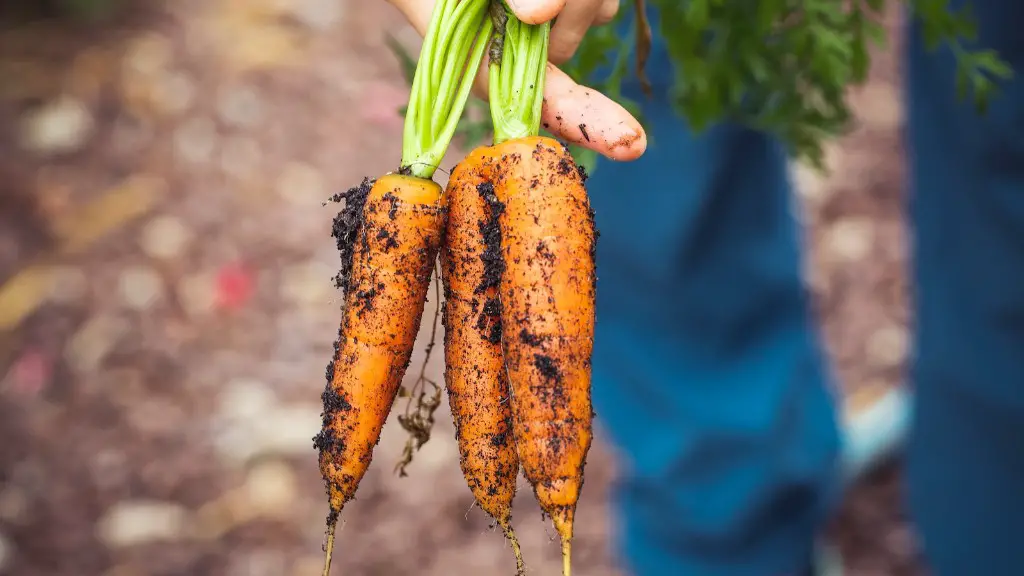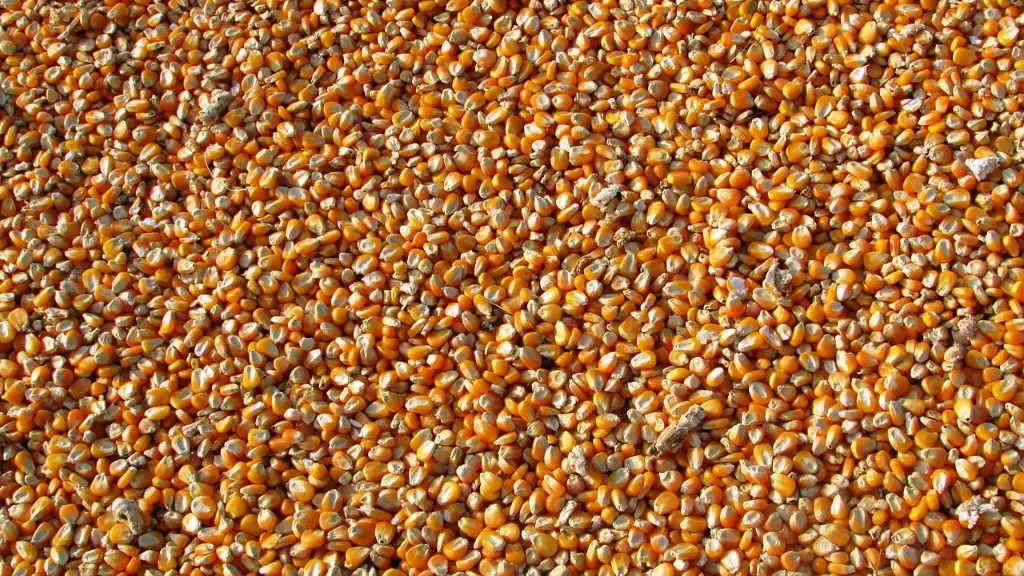There are a number of reasons why sustainable agriculture is important. For one, it is essential for maintaining the long-term productivity of our agricultural lands. It is also increasingly important in the fight against climate change, as it can help to reduce greenhouse gas emissions from agriculture. Furthermore, sustainable agriculture can help to ensure that our food supply is safe and secure, as it minimizes the use of harmful chemicals and pesticides. Finally, sustainable agriculture is important for the economic viability of farmers, as it can help to reduce production costs while still yielding a healthy profit.
There are many reasons why sustainable agriculture is important. First, sustainable agriculture is necessary to ensure that we have enough food to feed the growing world population. Second, sustainable agriculture is better for the environment than conventional agriculture. Sustainable agriculture uses less water, energy, and chemicals, and it produces less pollution. Finally, sustainable agriculture is more resilient to climate change than conventional agriculture. Sustainable agriculture practices can help farmers adapt to changing weather patterns and reduce the impact of droughts, floods, and other extreme weather events.
What is the main purpose of sustainable agriculture?
The goal of sustainable agriculture is to meet society’s food and textile needs in the present without compromising the ability of future generations to meet their own needs. This can be done by using practices that protect and conserve natural resources, optimize resource use and minimize pollution.
Sustainable agriculture is not only important for preserving the earth’s natural resources, but also for the environment as a whole. By helping to maintain soil quality, reducing erosion, and preserving water, sustainable agriculture benefits the environment in a number of ways. In addition, sustainable agriculture can help to mitigate the effects of climate change, as it can help to sequester carbon in the soil.
What is the importance and future of sustainable agriculture
Sustainable agriculture is an important part of feeding the growing worldwide population and reducing the impact of climate change. Today, agriculture accounts for up to 30% of the world’s greenhouse gas emissions, according to the World Bank. Sustainable agriculture practices can help reduce these emissions, while also providing other benefits such as improved soil health and water conservation.
The advantages of using fewer inputs of water and fossil fuels are that it saves money and causes less environmental damage. Soil is not degraded and may be enhanced, and less use of toxic chemicals benefits the environment. More genetic diversity is also an advantage.
What are 3 reasons favoring sustainable farming?
Organic agriculture is a great way to protect against GMOs. Not only is it sustainable, but it can also guarantee that the agricultural produce is GMO free. Additionally, organic agriculture can help reduce pollution and benefit long term.
Agriculture is vital for a number of reasons. It is the main source of raw materials for many industries, it is important to international trade, and it plays a big role in a nation’s revenue. Additionally, agriculture provides employment for millions of people around the world, and it is crucial to a country’s development. Additionally, agriculture can help heal the environment, and it often goes hand-in-hand with war.
What are the four goals of sustainable agriculture?
There are a number of ways to enhance environmental quality and natural resources:
– Use nonrenewable resources more efficiently
– Take better advantage of on-farm resources
– Employ natural and biological controls for pests and disease.
Each of these methods can help to improve the quality of the environment and the efficient use of resources. By using nonrenewable resources more efficiently, we can reduce the overall impact on the environment. Taking advantage of on-farm resources can help to reduce the need for external inputs, and employing natural and biological controls can help to reduce the use of pesticides and other chemicals.
Sustainable agriculture has many advantages that make it a preferable option to conventional agriculture. The first and most important advantage is the protection of the environment. Sustainable agriculture practices help to reduce erosion and natural resource degradation, improve air and water quality, increase biodiversity, as well as decrease carbon emissions.
In addition to the environmental benefits, sustainable agriculture is also economically advantageous. sustainable agriculture practices can help to decrease input costs, increase crop yields, and improve the quality of products. Additionally, sustainable agriculture can create jobs and provide economic opportunities in rural communities.
Overall, sustainable agriculture is a beneficial option for both the environment and the economy.
What are 5 reasons why agriculture is important
Agriculture is the main source of raw materials for many industries, such as cotton and jute fabric, sugar, tobacco, edible and non-edible oils. Other industries that rely on agriculture for their raw materials include processing of fruits and vegetables and rice husking.
Sustainability is a hot topic these days, particularly when it comes to food and agriculture. There are a number of different ways to approach sustainability, but there are five key principles that are essential for anyone looking to create a more sustainable food system.
1. Increase productivity, employment and value addition in food systems
Food systems are complex and there are many different players involved, from farmers and food processors to retailers and consumers. Increasing productivity, employment and value addition across the entire food system is essential for making it more sustainable.
2. Protect and enhance natural resources
Natural resources are the foundation of any food system and need to be managed carefully to ensure they are not degraded or depleted. This includes things like water, soil, and biodiversity.
3. Improve livelihoods and foster inclusive economic growth
Livelihoods need to be improved not just for the benefit of those directly involved in food production, but also for the communities and ecosystems in which they live. Inclusive economic growth means ensuring that the benefits of economic development are shared by all, including marginalized groups.
4. Enhance the resilience of people, communities and ecosystems
A sustainable food system needs to be resilient to the many challenges that it faces, such as
What are the pros and cons of sustainable agriculture?
There are both advantages and disadvantages to sustainable agriculture. The main advantages include cost reduction, control of air and water pollution and soil erosion, biodiversity, and social equality. However, there are also some downsides, such as the fact that it can take farmers longer to carry out their farm operations. In the end, it is up to the individual farmer to decide whether or not sustainable agriculture is right for them.
Crop rotation is a vital agronomic practice that helps to maintain and improve the health of soils. It does this by promoting diversity, preventing soil erosion and replenishing nutrients. Additionally, crop rotation can help to control pests and reduce the need for chemical inputs. When managed correctly, irrigation can also help to reduce soil erosion.
What are the two main objectives of sustainable agriculture
It is important to protect and enhance the environment and natural resources to protect the economic viability of farming operations. Farming operations can be adversely affected by environmental issues such as pollution, loss of habitat, and climate change. By taking steps to protect the environment, farmers can help to ensure that their operations are not adversely affected and can even improve their bottom line.
When agricultural operations are sustainably managed, they can preserve and restore critical habitats, help protect watersheds, and improve soil health and water quality. WWF identifies and implements better management practices for agriculture that can have a positive impact on these important issues.
Which are the most important characteristics of sustainable agriculture?
There are a number of practices that can be adopted to make agriculture more sustainable. These include rotating crops, planting cover crops and perennials, reducing or eliminating tillage, applying integrated pest management, integrating livestock and crops, and adopting agroforestry practices. By managing whole systems and landscapes, it is possible to create a more sustainable agricultural environment that can provide for human needs while also protecting natural resources.
Sustainable development has three main advantages: it helps improve the quality of life for current and future generations, lessens the negative impact on the environment, and promotes long-term economic growth.
Final Words
There are many reasons why sustainable agriculture is important. One reason is that it can help to reduce the amount of pollution that is created by traditional farming methods. Sustainable agriculture can also help to conserve water and soil resources. Additionally, sustainable agriculture can provide a more reliable food supply, as it is not as vulnerable to the effects of climate change.
Sustainable agriculture is important for many reasons. It helps to conserve natural resources, improve soil and water quality, and reduce pollution. It also supports local economies and creates jobs. Moreover, sustainable agriculture is more resilient to climate change and can help to mitigate its impacts.





